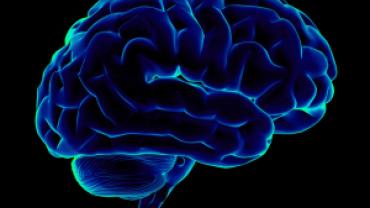
There is a huge epidemic of neurodegenerative disorders. For example treatment for dementia is costing us twice as much as heart disease and triple what is spent on cancer care. Also the most rapid cause of death in our western culture is neurological disease.
What causes brain degeneration?
The process begins early on with inflammation in the brain which produces free radicals that ultimately kill brain cells. In Alzheimer's patients the brain cells that produce acetylcholine are affected. Thus pharmaceutical agents for Alzheimer's disease work by reducing the breakdown of acetylcholine in order to slow down the progression of the disease. A similar scenario occurs with Parkinson's disease where there is death of brain cells that leads to decreased dopamine; hence dopamine is given to treat the disease yet the causes are ignored. Physicians must address the inflammation and free radicals that leads to the death of brain cells because that is going to help prevent the problem in the first place.
Free radicals play a significant role in the pathogenesis of neurological disease with oxidative stress being an early event in the disease process. Therefore antioxidants are critical to help dampen the burden of harmful free radicals that damage our proteins and DNA. There are many studies that show the slowing of progression of Parkinson's with the use of CoQ10. It is also important to note that many drugs deplete various nutrients such as CoQ10.
What causes these free radicals?
Traditional medicine says this is unknown however when we look further into the research the causes are well defined. Gluten and glucose are direct initiators of inflammation and the production of free radicals. Studies published in the New England Journal of Medicine showed a significant increased risk of dementia in direct correlation with blood sugar. This process was occurring even in non-diabetics. Even at fasting glucose levels of 105mg/dl and 110mg/dl patients are already increasing their risk of developing dementia. This is empowering because this process is actionable. Blood sugar is under a person's control by the food and exercise choices they make. Glucose in the bloodstream binds to protein (glycation). When this occurs it upregulates inflammation and free radicals. Hemoglobin A1c is a great (and simple) lab test to measure glycation. Since HA1c is a glycated protein it is a powerful marker for brain aging.
Gluten is a major cause and contributor to neurodegenerative as well as autoimmune diseases yet most doctors dismiss gluten as a problem. Traditional diagnostic testing has focused on blood antibody tests and/or intestinal biopsies. Unfortunately traditional tests for gluten sensitivity are often inaccurate as there tends to be a large amount of false negatives. For this reason I simply have patients eliminate gluten from their diet.
It is important to gather a comprehensive assessment including organic acids amino acids heavy metals fatty acids and oxidative stress markers. Food-specific antibodies should also be considered. Food reactions have been associated with inflammation and removing offending foods may help to reduce neurological symptoms. In addition an assessment of gastrointestinal function should be performed. Gastrointestinal imbalances have been identified as involved in the pathogenesis of autoimmune and neurological disorders. There are many lifestyle choices and environmental influences that are associated with the expression of neurological disease and a successful approach must include investigation into these factors.
Nutrients for Brain Health
GPC is an important nutrient for the brain. It is naturally occurring in all our cells. GPC effectively raises acetylcholine showing improvements in memory mental focus and cognition
Acetyl L-Carnitine is a critical energy cofactor for brain cells which increases learning capacity and helps prevent memory decline
R-Lipoic Acid increases cellular and mitochondrial antioxidant activity. RLA improves memory reverses cognitive dysfunction and protects the brain from neurodegeneration associated with aging. In addition it significantly increases insulin sensitivity.
CoQ10 (ubiquinone) has been shown to slow the functional decline in these neurodegenerative disease particularly Parkinson's disease.
Phosphatidylserine (PS) is a nutrient essential for optimal brain function. PS has been shown to prevent age-related memory decline and improve the quality of life for Alzheimer's patients. There are no PS-rich foods so supplementation is the only way to increase PS levels.
by Michael Jurgelewicz DC DACBN DCBCN
References
NEJM 368 April 4 2013 1326-44.
NEJM 369:6 August 8 2013 2066
Neurology 2013: 2035-2041
Neurology 2013: 1019-1026
Journal of Neural Transmission 105 (4-5):439:461:1988